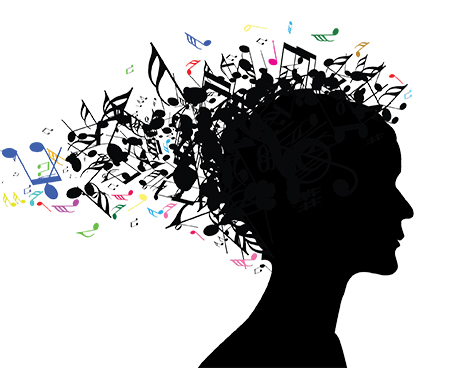Musical Encounter

What is the description of music for you? A rhythm that manages to leave nothing but emotions behind is what music means to me.
You can describe it using different words and feeling but the underlying fact is that good music is soothing. Music has been touching and changing lives since the beginning of human civilization. It used to be nothing but drums in the olden times but now there are a great many instruments that pleasure our soul as well as the brain through and through.
Studies all over the world show just the same. Tones and tempo of songs have a lot to do with how they affect our moods. How? Our brain and heart sync with the tempo of the music we choose to listen, which effectively releases chemicals that have people feeling a certain way or altering the mood they are in.
A song with a slow beat has the power to be pleasing and as well as bringing forth feelings of grief. An upbeat tempo can foster excitement and a dreamy beat with an occasional upbeat tempo can bring about feelings of love and/or joy.
Listening to upbeat and dreamy tempos usually results in our brain producing chemicals like serotonin and dopamine, that make us happy and relaxed. The low beat, sad music can foster negative feelings of profound grief. A song can very well foster more than one particular emotion in a person. One can feel melancholic and happy as well as countless other pairings of emotions when he or she listens to even one.
We tend to listen to songs according to our moods hence the chosen music has the power to amplify that mood. In case your music choices are venturing into the negative space take a small conscious step to drift towards lighter tempos.
A single good song or piece of music you listen can change the whole mood of the day for the better. Talking about altering moods, music has recently been seen as a therapeutic method to boost people’s mood. A study conducted in the UK found that people with dementia experienced a boost in their mood and self-confidence with the help of a unique orchestra.
Music can very easily be a choice to distract or use as a medium to change how one is feeling at the moment. Recent studies prove that music has played a significant role in the recovery of people with depression. The research, however, stresses on the type of music that benefits the listener in question. Classical and meditative sounds were deemed to be uplifting, while heavy metal and techno music could actually make depressive symptoms worse. Another study concluded that music is a valid therapy to potentially reduce depression and anxiety, as well as to improve mood, self-esteem, and the quality of life in general.
Barry Goldstein, a recording artist who studied the vibrational effects of music for more than 25 years, said music has a profound impact on the brain. And that music has the power to evoke emotions, help regain memories, stimulate new neural connections and active attention.


